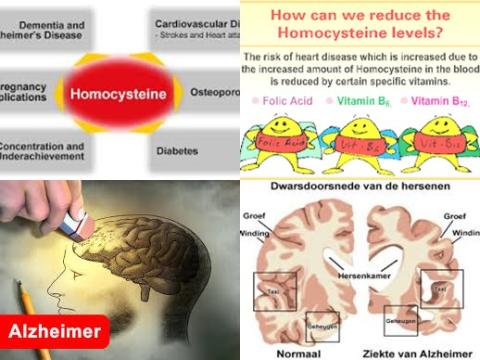
Objectives:
Does a high blood homocysteine level increase risk of cognitive impairment, like Alzheimer's disease and vascular dementia?
Study design:
This review article included 28 prospective cohort studies with 2,557 cases (1,035 all-cause dementia, 530 Alzheimer's disease, 92 vascular dementia and >900 cognitive impairment without dementia (CIND)) among 28,257 participants.
The average follow-up period ranged from 2.7 to 35 years.
There was no clear evidence of publication bias with Begg's and Egger's tests for Alzheimer dementia [p = 0.806, 0.084, respectively].
Results and conclusions:
The investigators found there was a clear linear dose-response relationship between blood homocysteine concentration and risk of Alzheimer-type dementia [p > 0.05 for non-linearity].
The investigators found for every 5 μmol/L increase in blood homocysteine a significantly increased risk of 15% [pooled RR = 1.15, 95% CI = 1.04 to 1.26, I2 = 56.6%, n = 5] for Alzheimer-type dementia.
Sensitivity analysis showed similar results.
The investigators found due to the presence of publication bias and low statistical power, elevated levels of blood homocysteine were not appreciably associated with risk of all-cause, vascular dementia and cognitive impairment without dementia.
The investigators concluded every 5 μmol/L increase in blood homocysteine is linearly associated with a 15% increase in relative risk of Alzheimer-type dementia.
Original title:
Hyperhomocysteinemia and risk of incident cognitive outcomes: An updated dose-response meta-analysis of prospective cohort studies by Zhou F and Chen S.
Link:
https://www.ncbi.nlm.nih.gov/pubmed/30826501
Additional information of El Mondo:
Find more information/studies on Alzheimer disease.